Collie Colors
Dealing with the various colors of Collies on a scientific basis, one gains highly interesting insights.
Sable & Tricolor
From a scientific perspective, there are only two colors in Collies: Sable and Tricolor. When both colors are combined, the result is a Dark Sable, as the dominant Sable gene overlayes the inferior (recessive) Tricolor gene. Usually, this does not completely, so the Dark Sables vary in color from light to dark. The lighter ones are visually indistinguishable from Pure Sables (without the tricolor gene). In Tricolors, in addition to the black base color, there are reddish-brown tan markings framing the black on the nose, cheeks, and legs.
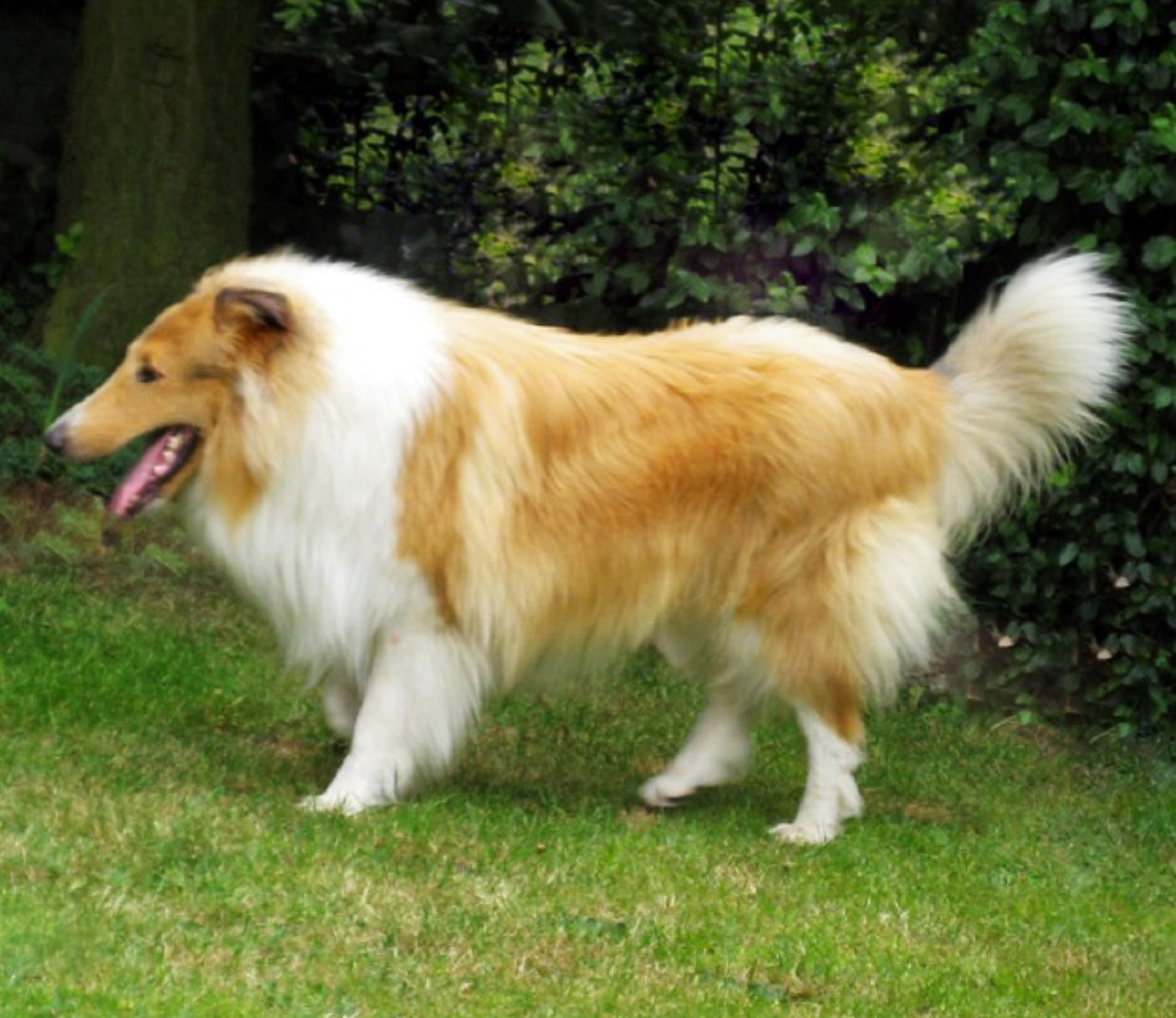
Pure Sable / White
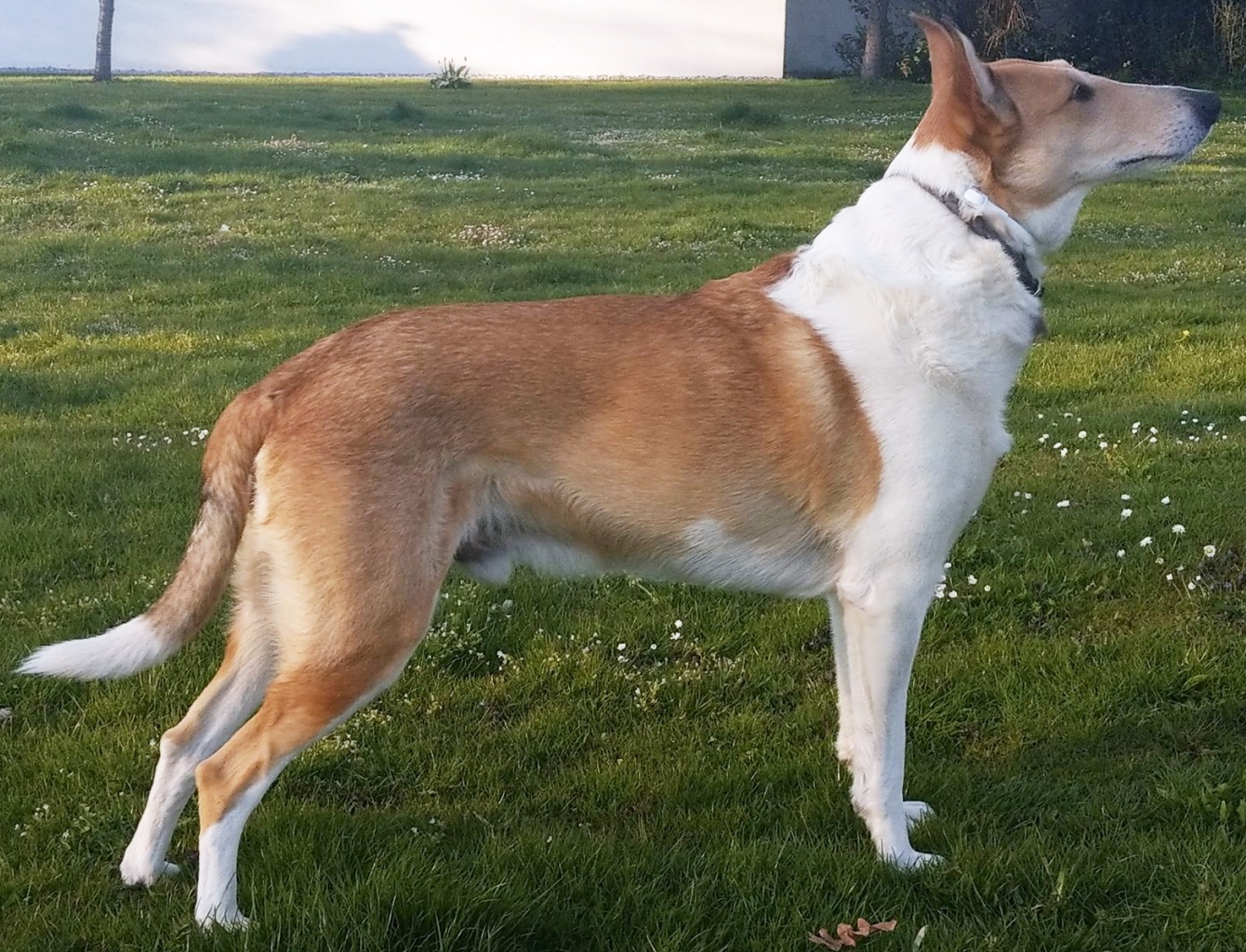
Pure Sable
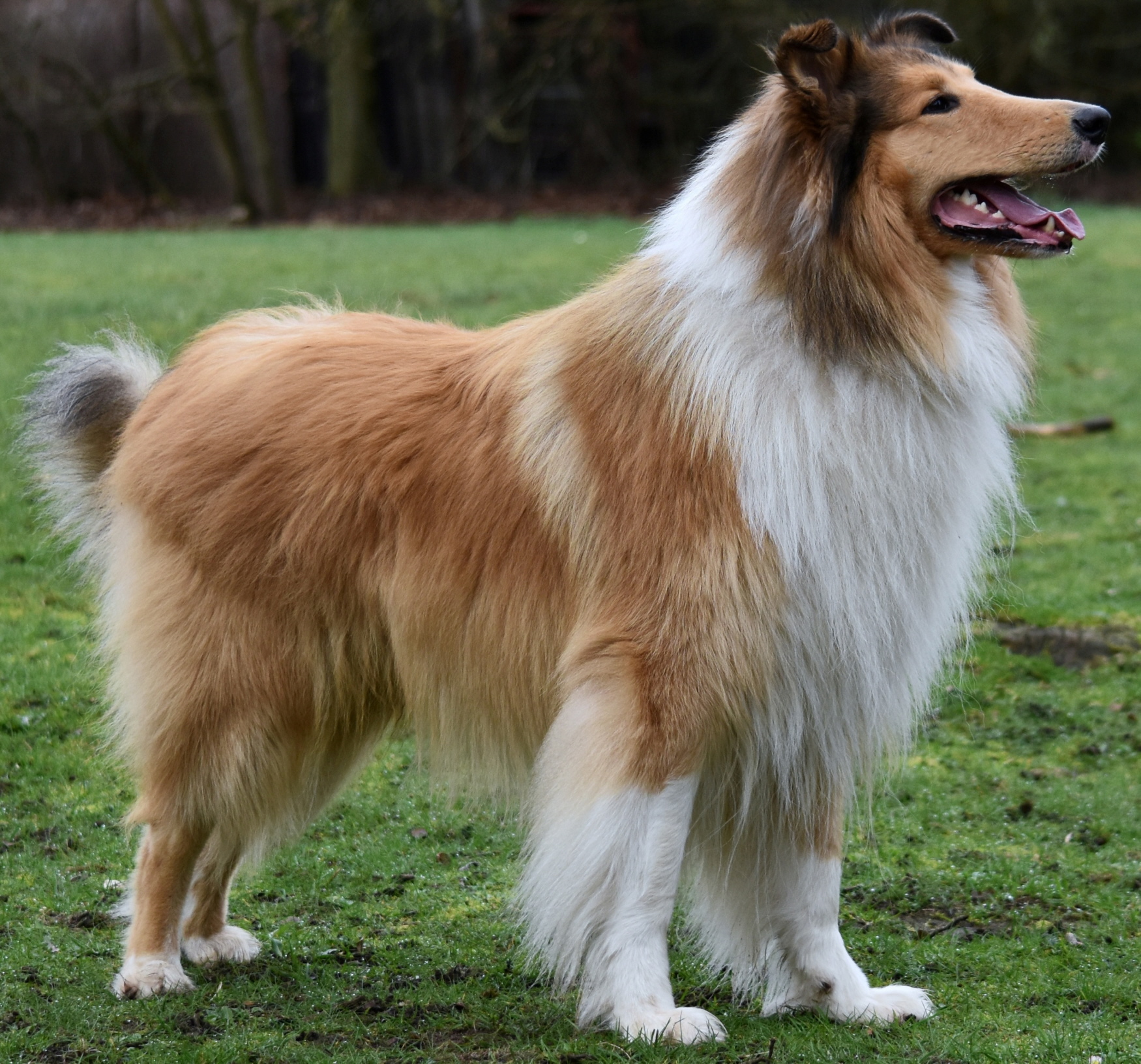
Dark Sable
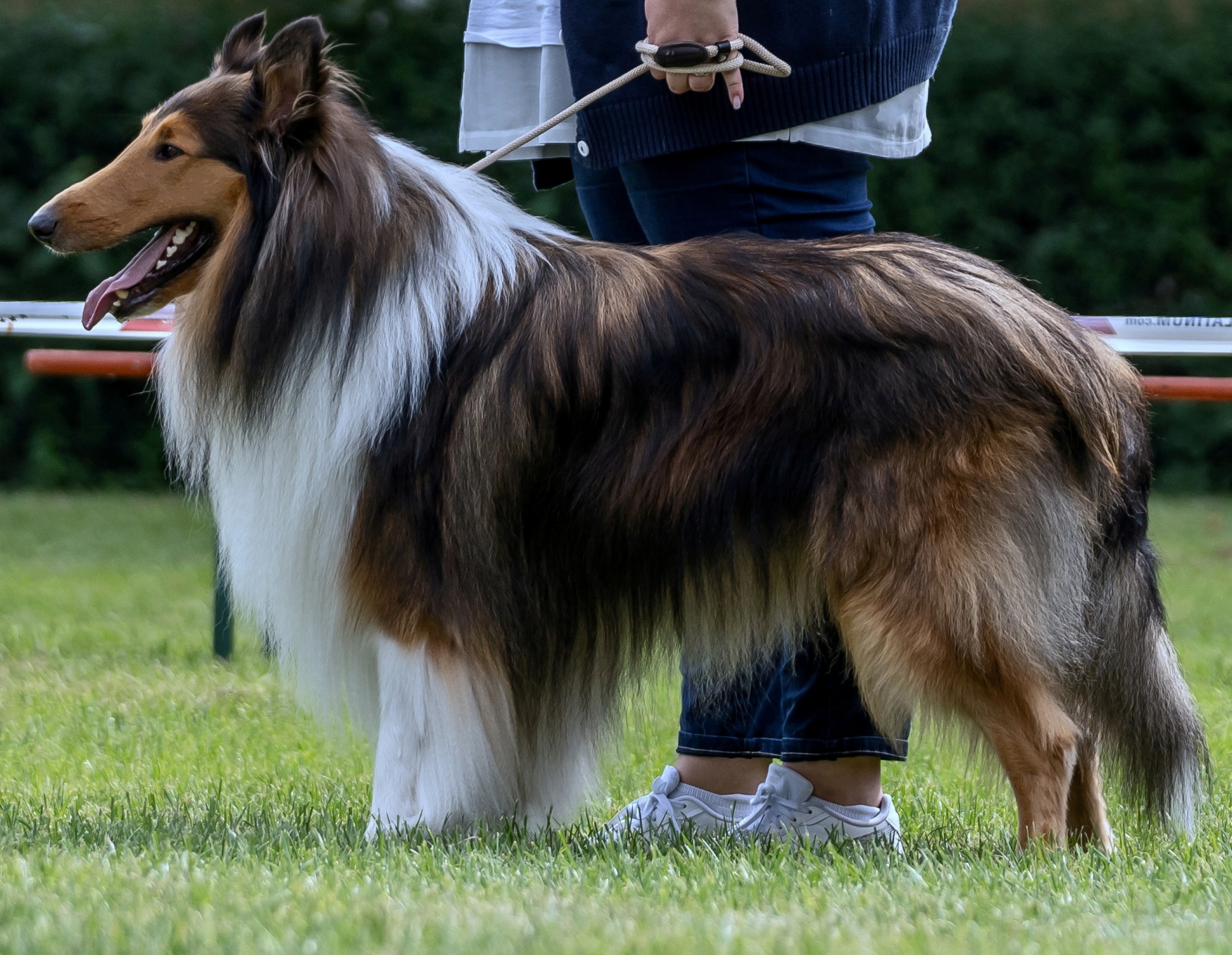
Dark Sable
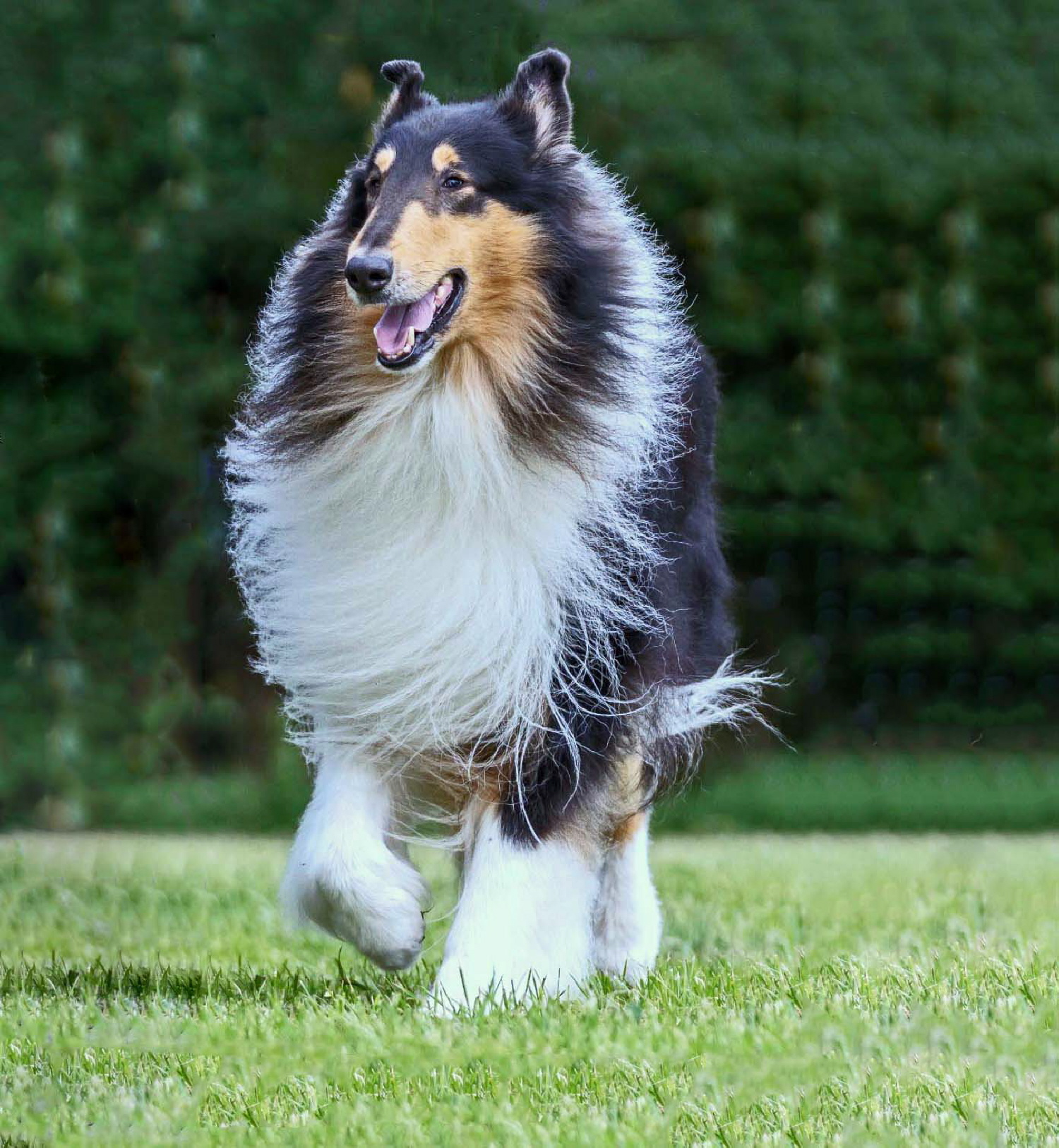
Tricolor
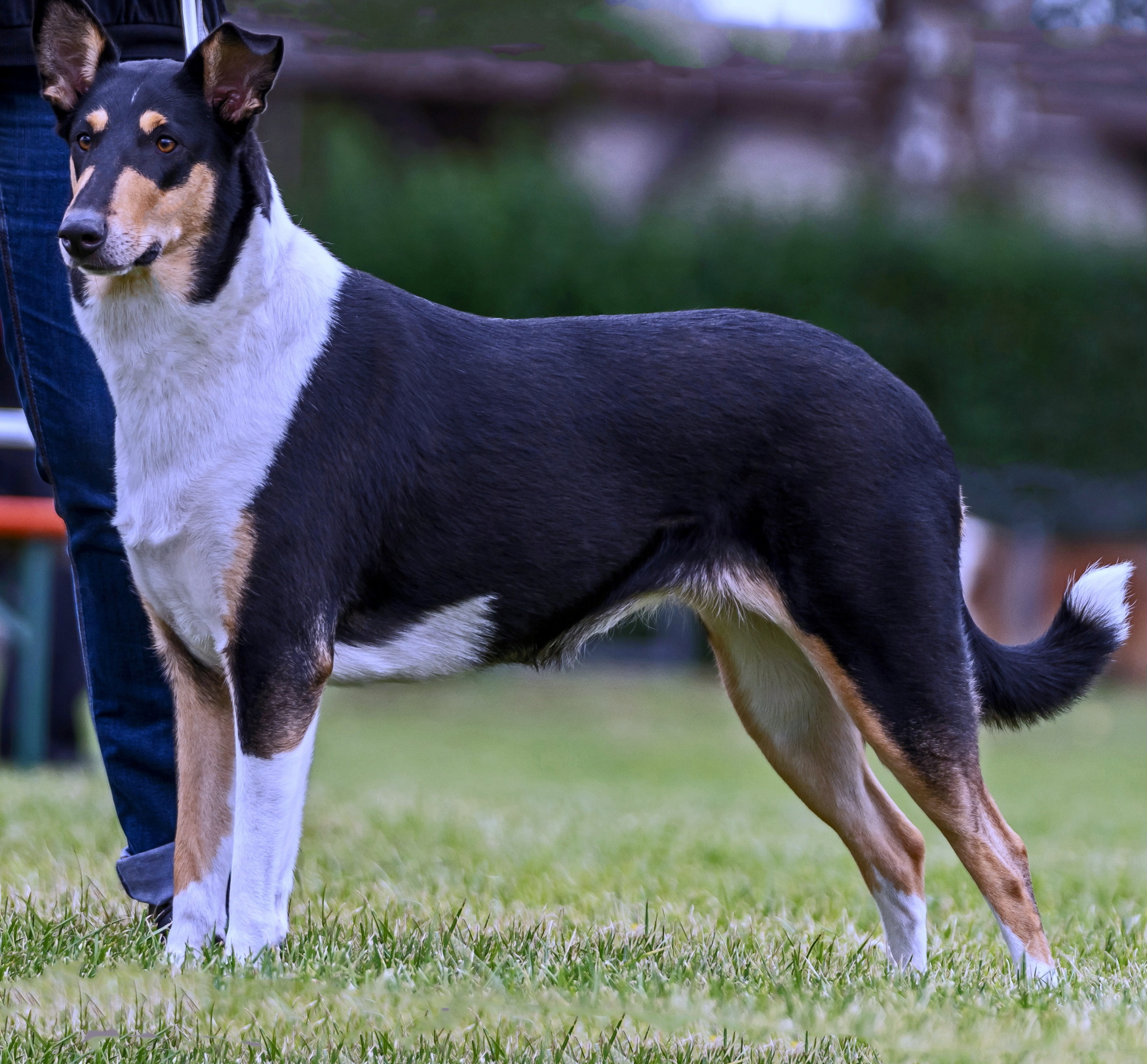
Tricolor
White / Whitefaktor
© Copyright Beate Rosenbach
Dealing with the various colors of Collies on a scientific basis, one gains highly interesting insights.
There are two forms of White in Collies. First, there are genetically fixed White markings, such as the collar, paws, tail tip, etc., called the Irish Pattern. Second, there is Piebald White, which, depending on the degree of whiteness, can be recognized in its minimal form (White Factor) by the raised white on the hind legs, and in its maximum form as white, which extends from the collar across the body.
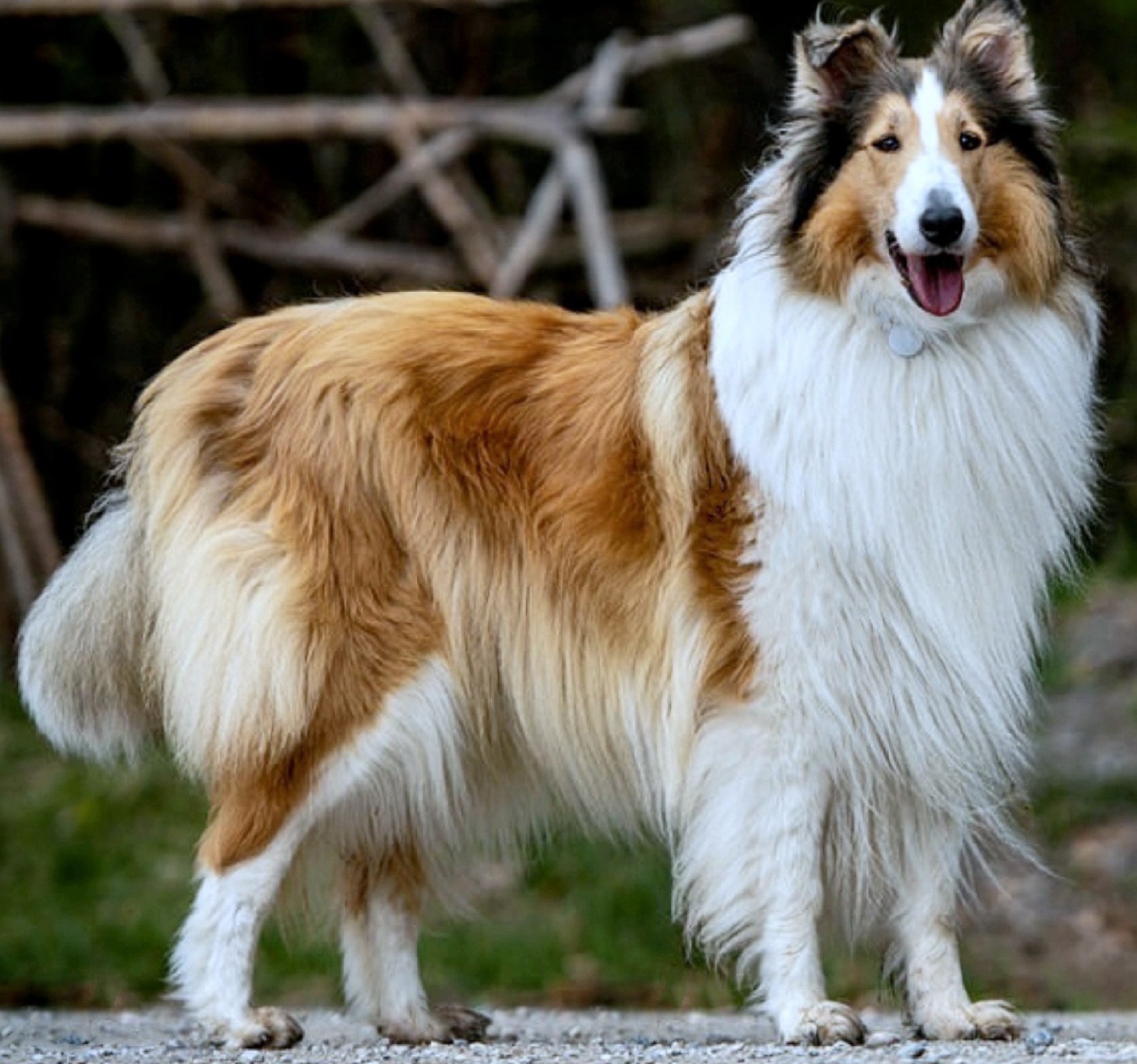
Dark Sable / White
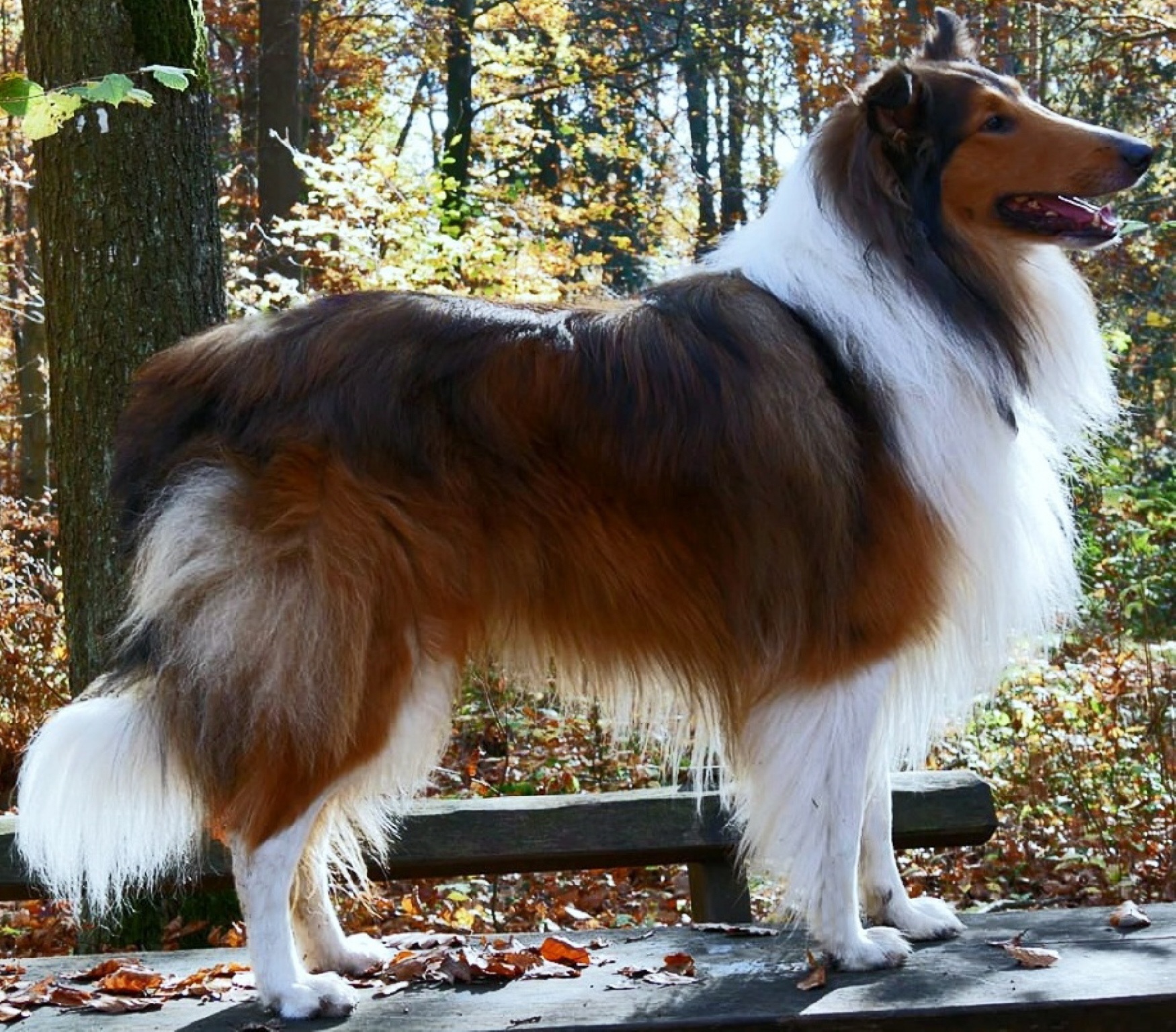
Dark Sable / White
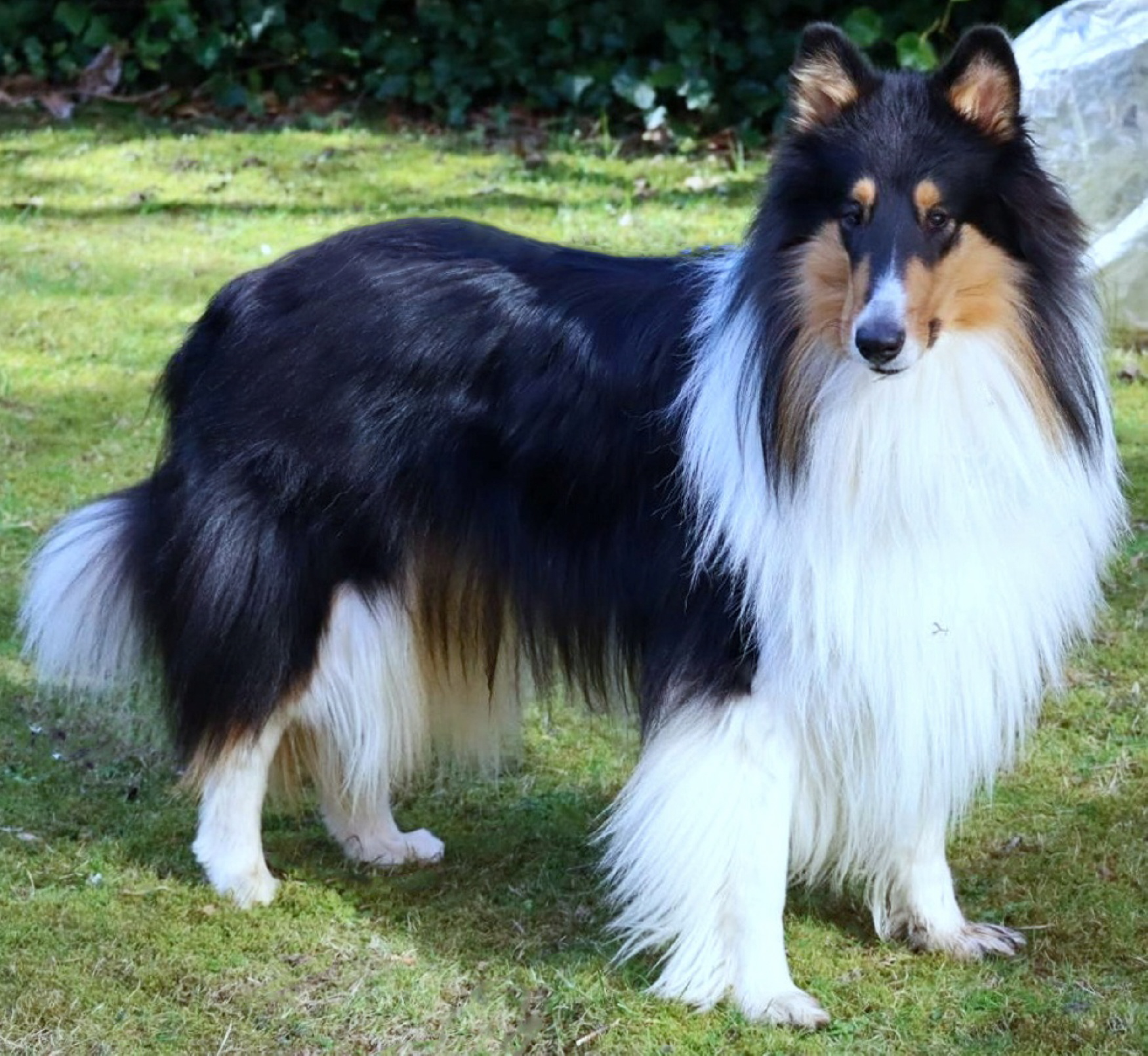
Tricolor / White
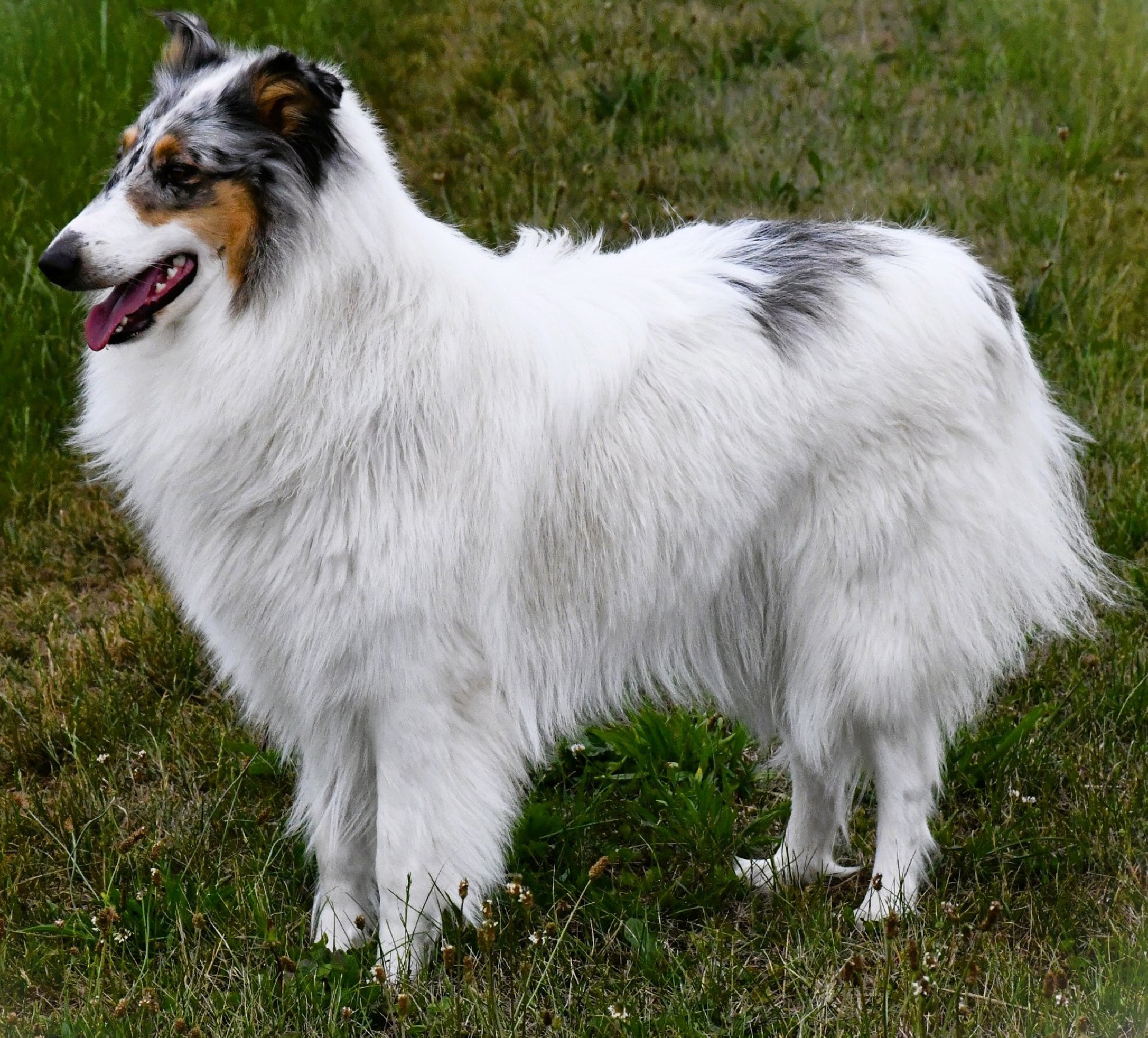
White / Blue Merle

White / Dark Sable
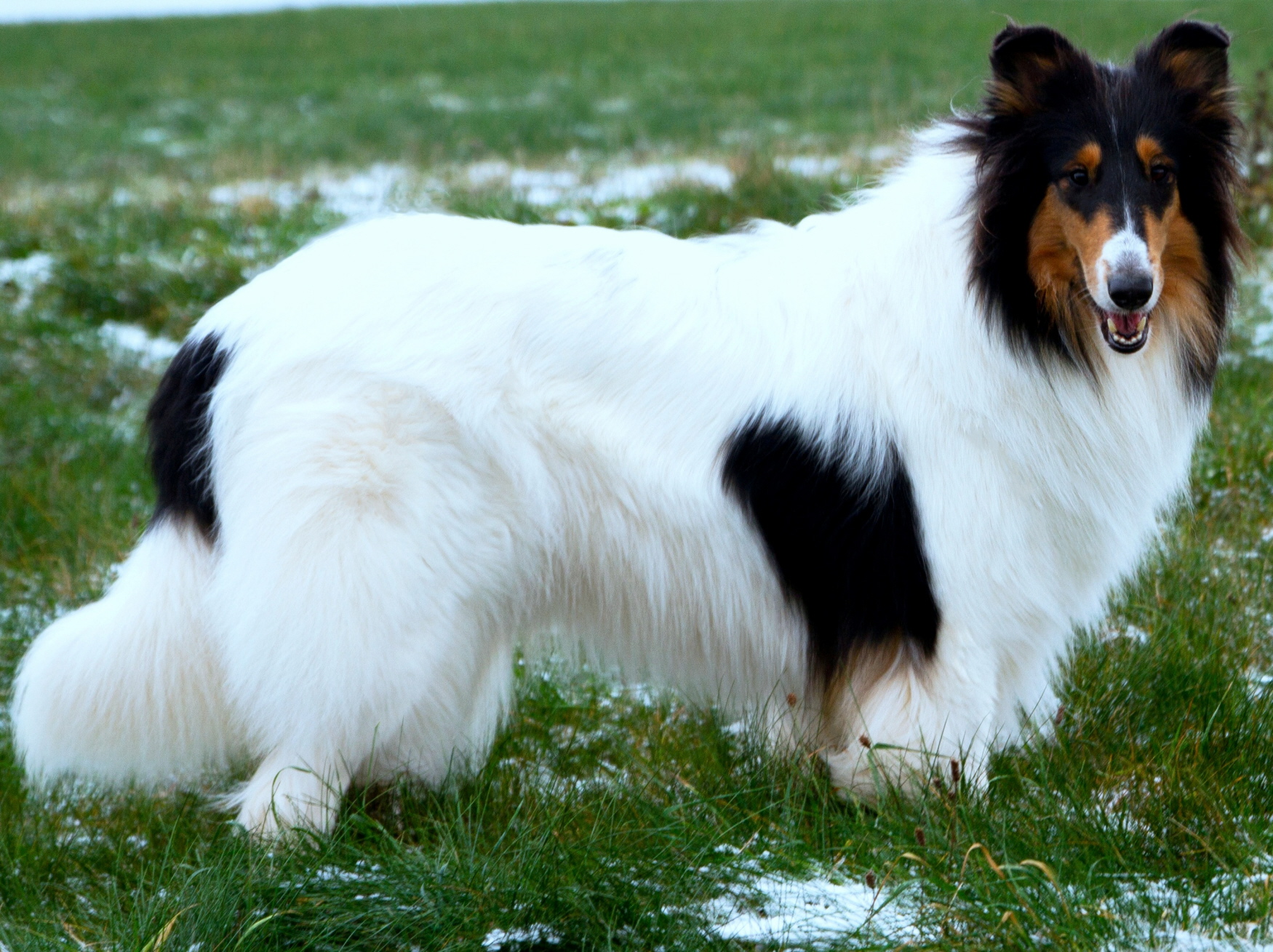
White / Tricolor
Collie Colors
Merle
Merle is a brightening of the basic colors Sable and Tricolor. In its classic form, the Tricolor, for example, lightens to a silvery blue, interspersed with black speckles. While the brightening in the sable is usually only noticeable in young puppies. There are now 7 basic variants, from invisible Merle to Classic Merle, Harlequin/Fawnequin/Minimal Merle and mixed forms.
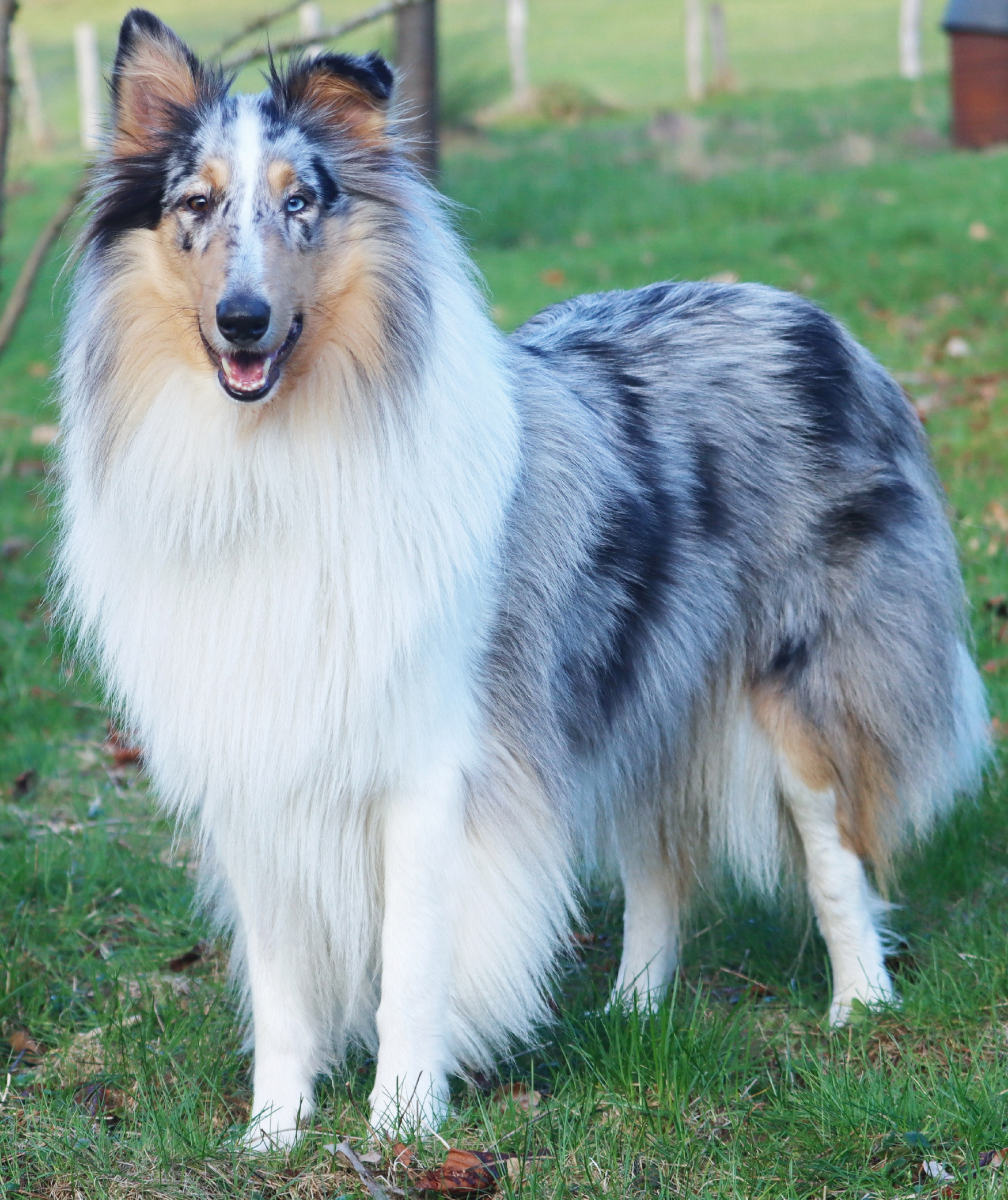
Classic Blue Merle / White (m/M (267))
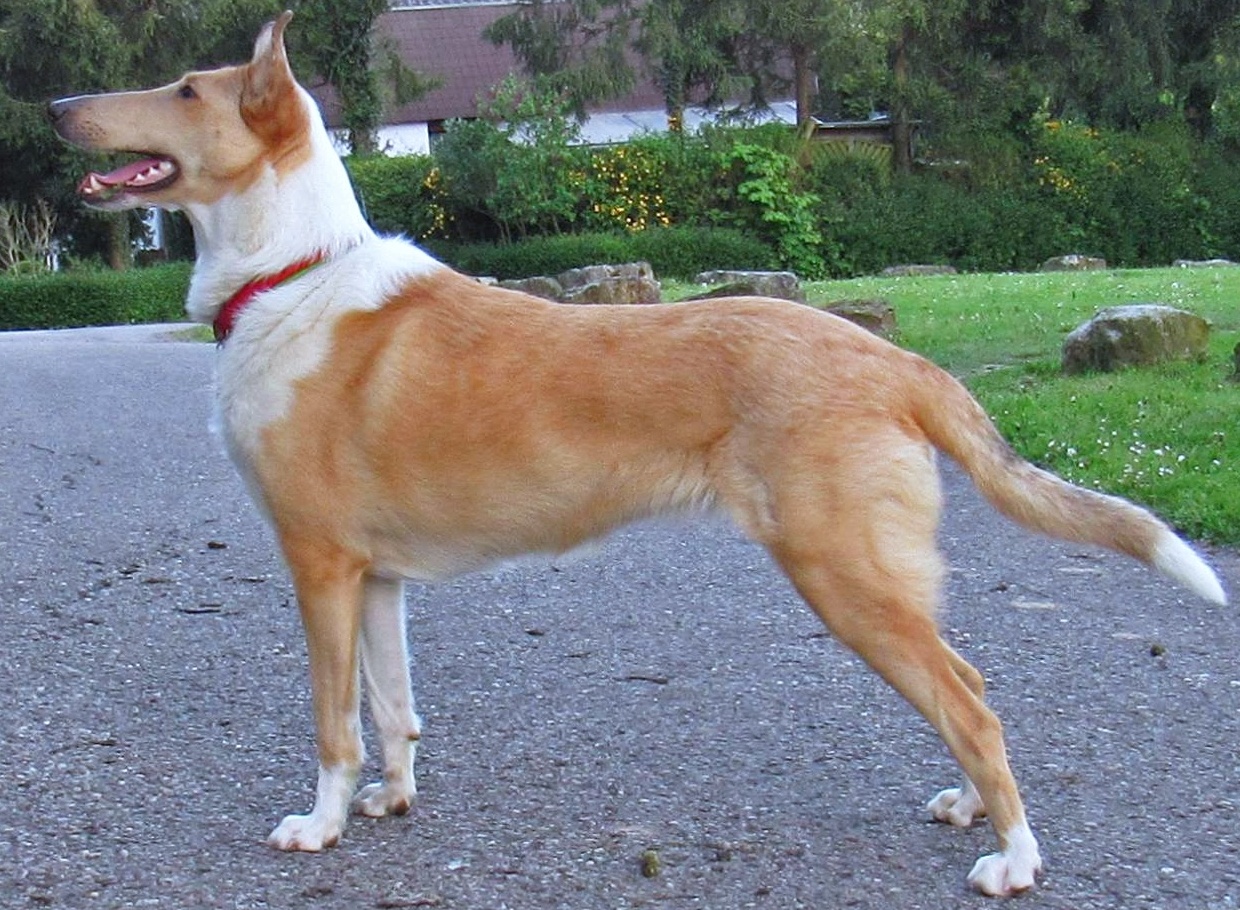
Sable Merle
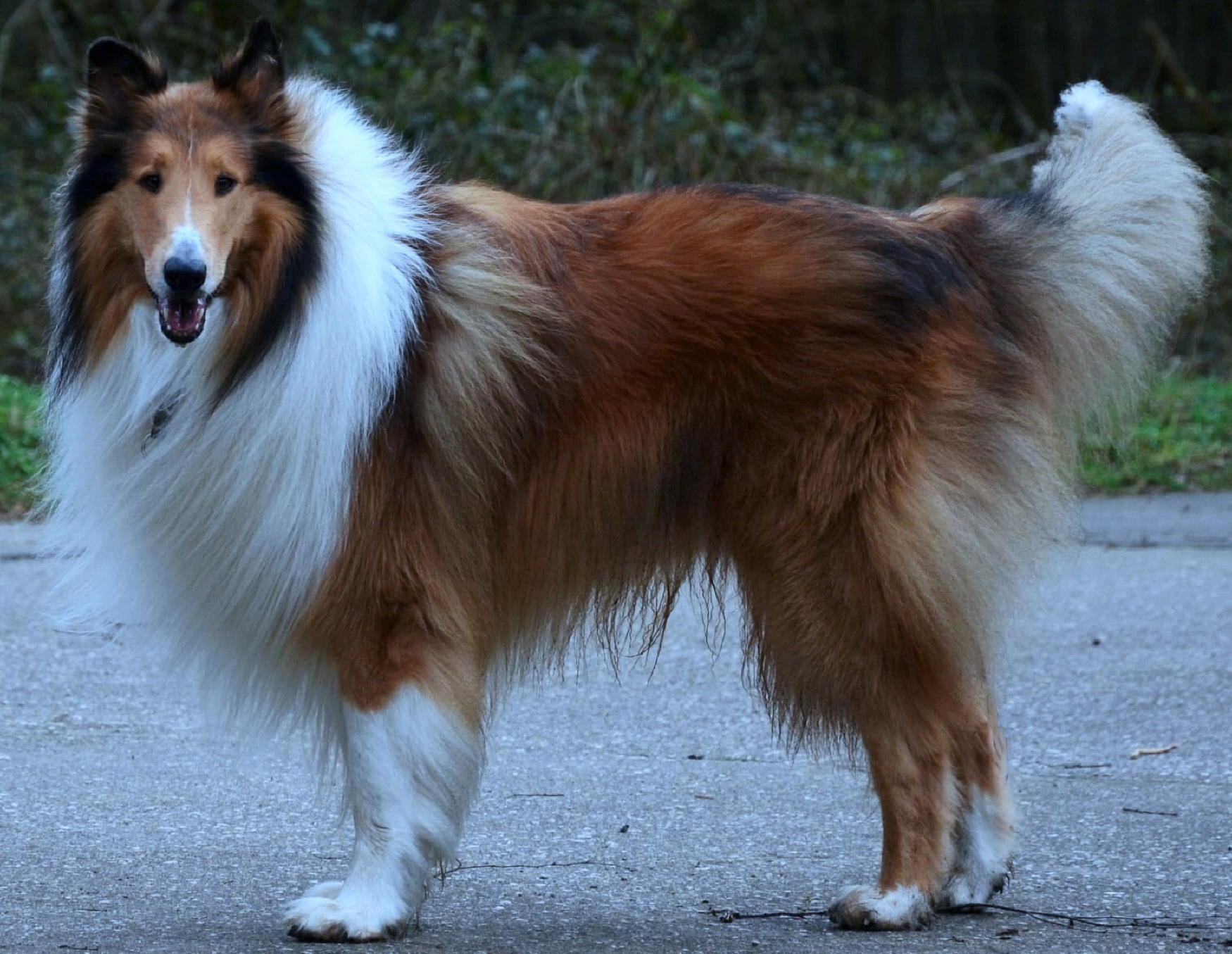
Cryptic (Dark) Sable Merle (m/Mc)
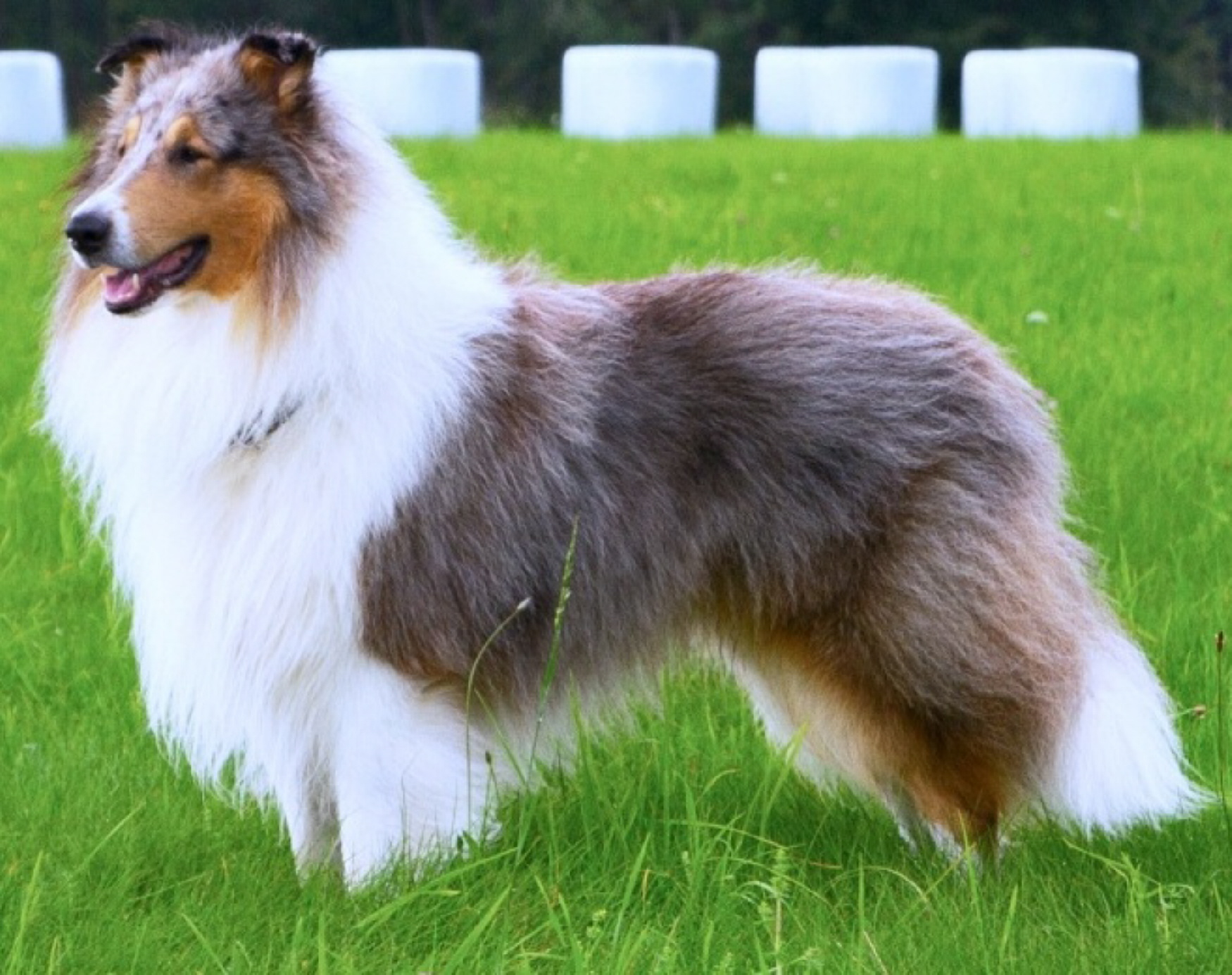
Atypical Merle / White (m/Ma+ (236))
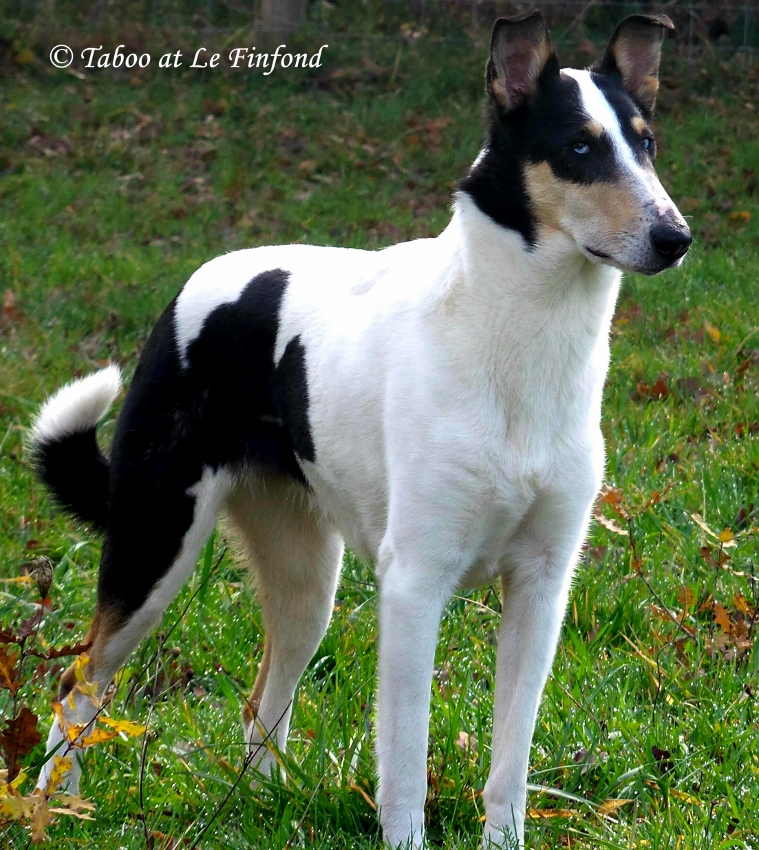
Harlequin (m/Mh)
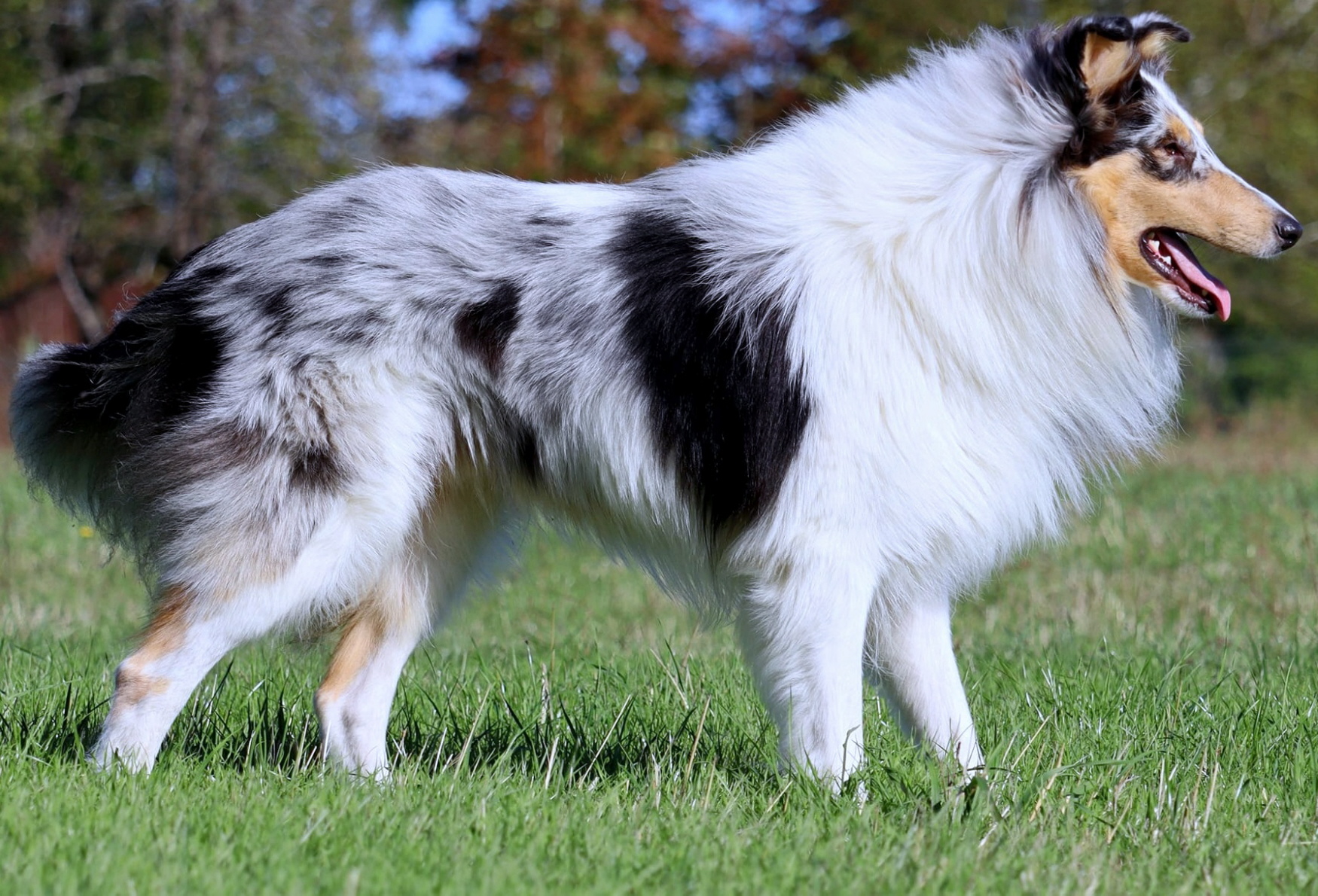
Harlequin Merle (m/Mh)
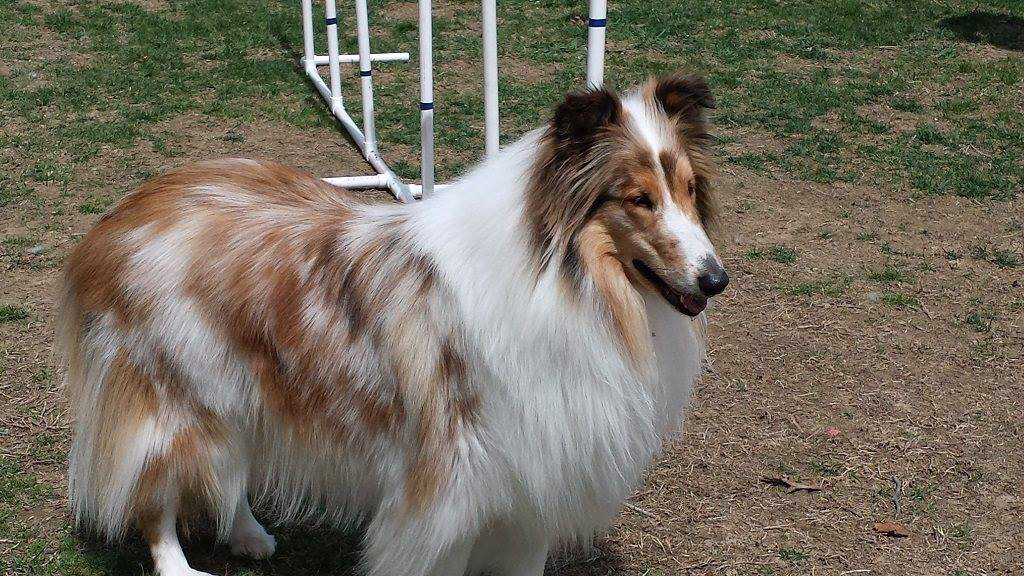
Fawnequin (m/Mh)
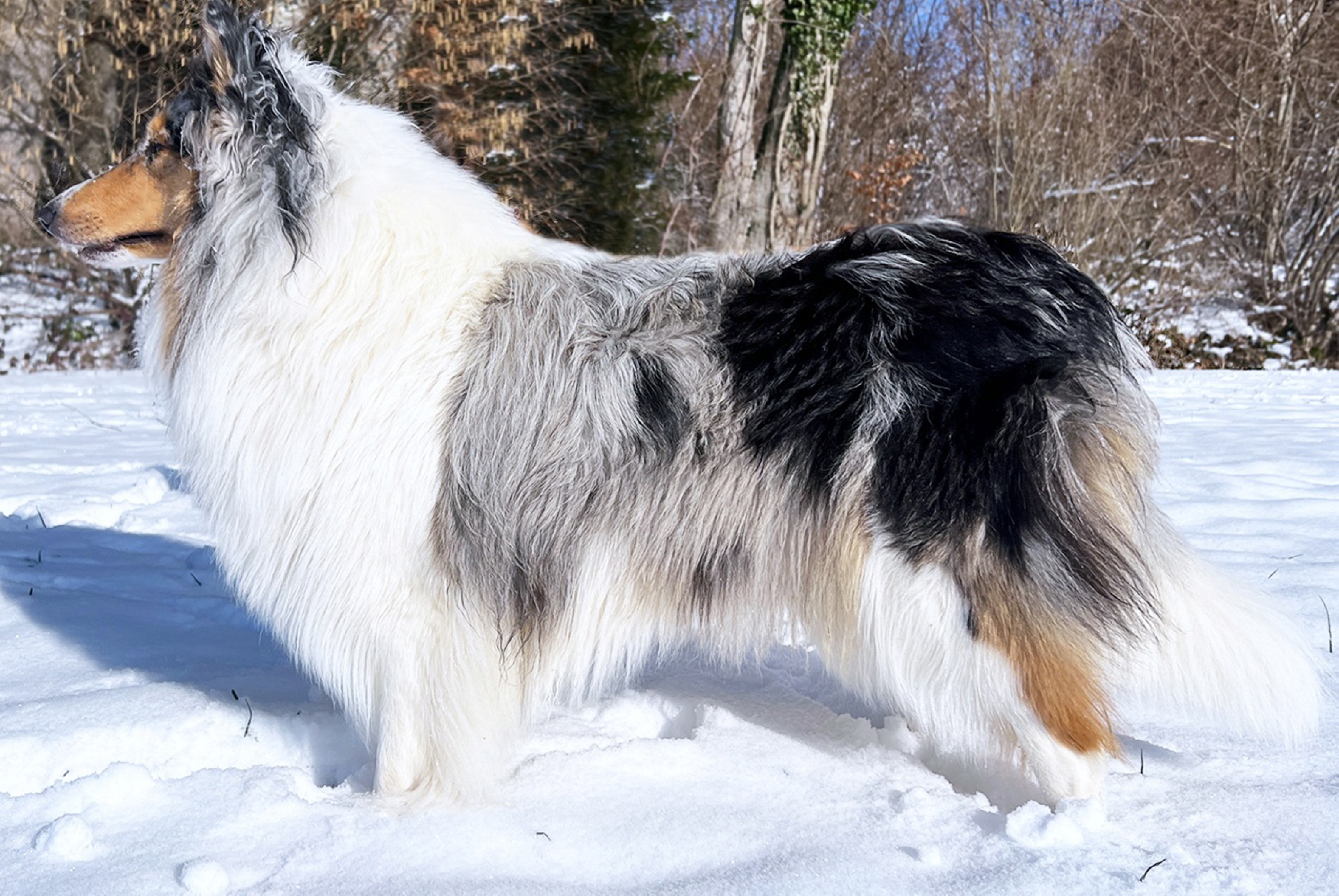
Mosaic Merle (m/[Mc]/M)
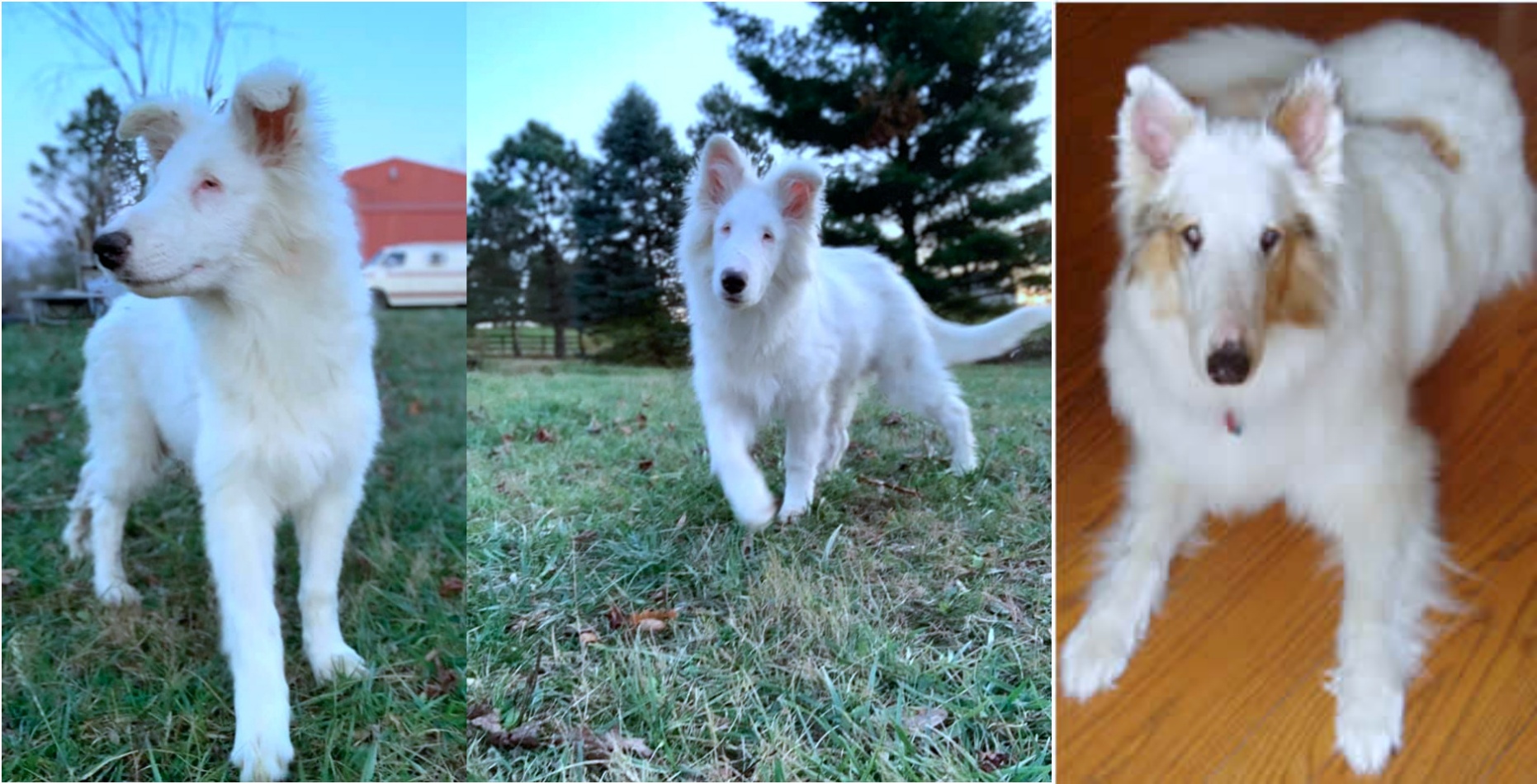
Double Merle (M/M) - prohibited!
Undesirable Color Changes
In addition to the color variations mentioned above, there are rarely others. For example, in the affected E locus (e/e), there is a reddish-light brown overlay on all colored areas, including the nose. In the Maltese Blue, there is a slight dilution of all colors, including the tan markings. Collies affected by Gray Collie Syndrome also have a lighter coat. In these cases, the tan markings are even missing and the nose is not fully pigmented. However, these dogs are critically ill with a massive drop in white blood cells every approximately 11 days and usually die early. In the Fever Coat, the lightening on the trunk is only temporary and disappears again with subsequent coat changes, and there are probably no health restrictions.

E-Locus (e/e)
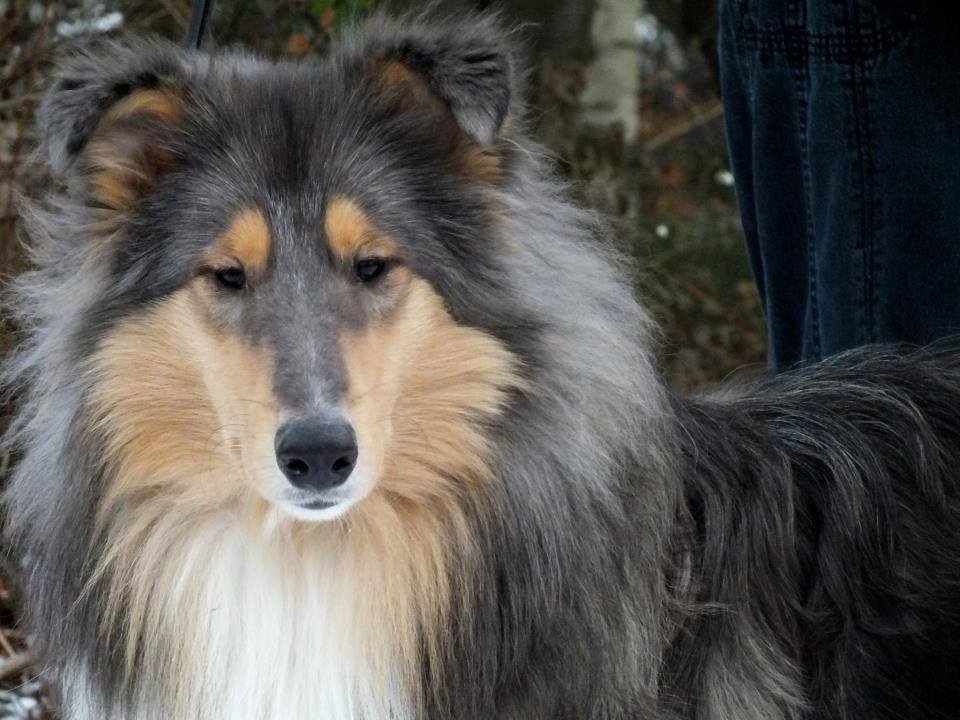
Maltese Blue (d/d)
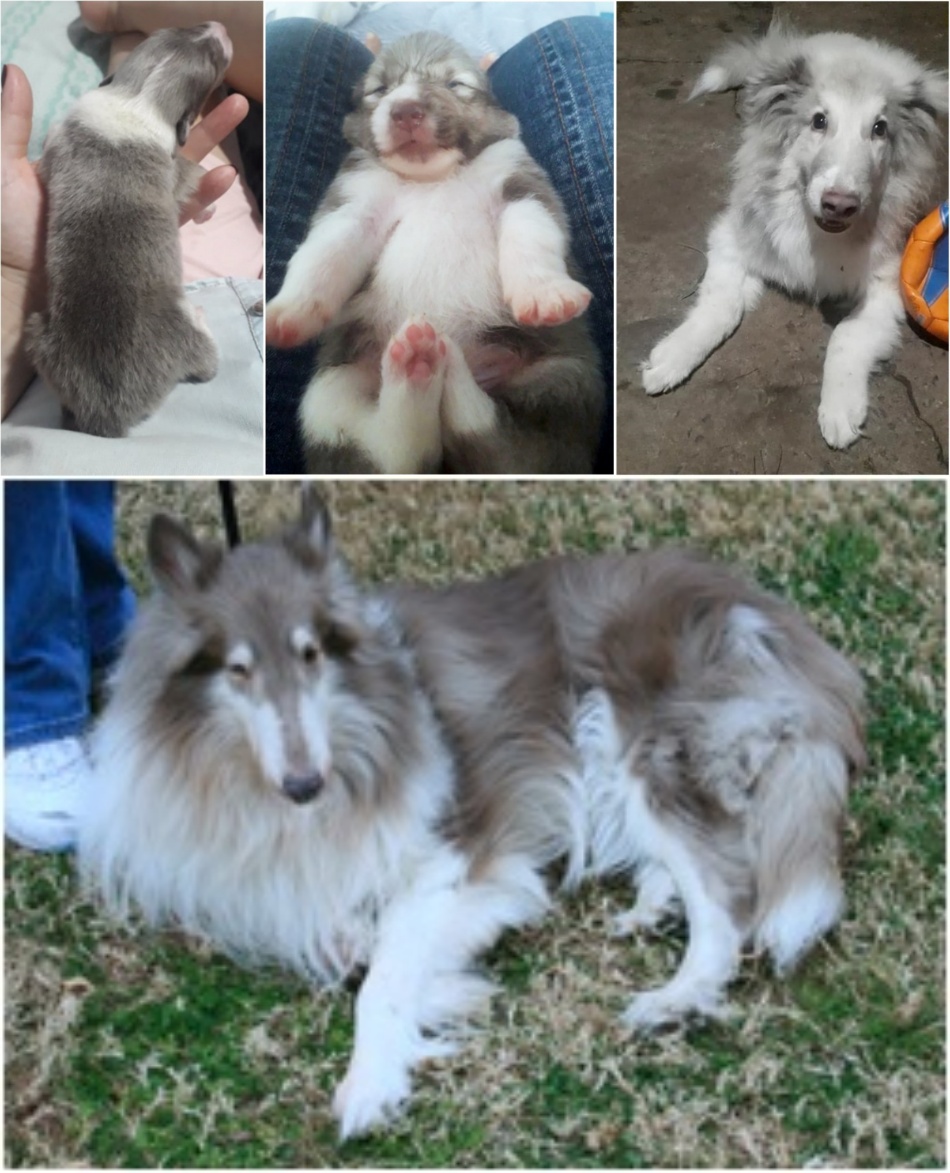
Gray Collie Syndrom (GCS/GCS)
Hair Length
The dominant Smooth gene dominates over the recessive Rough gene. This means that when a Pure Smooth is mated with a Pure Rough, all offspring are Smooth. However, if you look more closely, you'll see that their coat is slightly longer, as is typical forSmooth, because they all have a Rough Factor that causes their coat to be slightly longer. All Smooth with a Rough Factor can produce Roughs with a 50% probability when mated with a Rough. In American Lines, their coats are usually of a normal length, as is typical for Roughs. In some European Smooth Lines, this has been somewhat lost, so the offspring often only have medium-length coats. Test: https://laboklin.com/en/products/genetics/coat-colour-coat-structure-coat-length/cat/coat-length-long-or-short-hair/
© Copyright Beate Rosenbach

